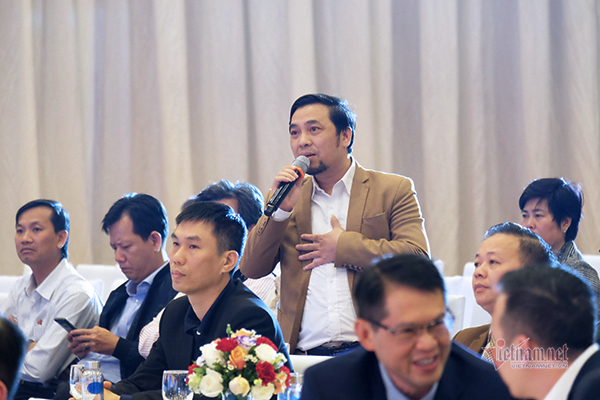 |
| Vu The Binh, secretary general of the Vietnam Internet Association (photo: dangcongsan.vn) |
It has been a difficult year for the economy as a whole due to the global health crisis. COVID-19 has also prompted all businesses to make changes from traditional businesses into new ones, including member companies of the Vietnam Internet Association (VIA).
Domestic and foreign-invested enterprises in Vietnam have looked into new business models to stand firm and develop in 2020. It is no doubt that most enterprises turned towards “optimise” mode, controlling costs and managing the risks caused by the pandemic.
VIA members are also in the same situation, trying to maintain the business, keep customers, and prepare for recovery. They are also trying to use digital and online tools for optimising and adapting business in the new normal landscape.
Especially, the Vietnamese government has been accelerating digital transformation in state agencies, as well as the business community to adapt to the new situations. Many VIA members are taking important roles in this journey, especially the big telecom groups such as Viettel, VNPT, MobiFone, FPT, and others.
Elsewhere, some other members are offering flexibility, offering useful online applications for the business community to adapt to the new normal.
The Vietnamese telecoms market has witnessed strong growth in recent years, and is expected to have continued growth over the forecast period to 2025 on the back of increasing urban population with rising adoption of the mobile phones that supports 3G, 4G, and 5G services across the country. The sector is further expected to have strong growth over the forecast period with rising adoption of the Internet of Things that connects with wired and wireless broadband.
All of the major 2G/3G platforms are expected to be shut by the end of 2025, and by 2029 the majority of mobile connections will be on 5G. It is expected that hundreds of millions of fixed broadband connections will exist by 2025, compared to over tens of millions of wireline voice connections, ensuring that mobile will be the principal form of connection.
Looking towards 2021, when 5G is expected to be commercialised nationwide, our VIA members are preparing to tap into new opportunities.
5G is a long-term game, and challenges are still there for big telcos that want to have commercialise 5G: how to balance between large investments and unpredictable revenue streams. We think 5G providers will make it step-by-step.
We think that 5G will bring about a number of opportunities to our member companies, as it can create a new ecosystem, which is good for not only the 5G telcos, but also to many other companies which can rely on 5G to develop creative applications. For some smaller groups, 5G could be a threat to their business if they just rely on pure fixed telecom services.
Regarding the possible scenarios of the local market in the context that this coronavirus is still for the long haul, we think in Vietnam, current conditions could extend until the end of 2021. That means jobless rates could be an issue for some sectors, such as travel, tourism, and related business, and this could affect telecoms and the internet business.
We think our members are strong and have good strategies to overcome this difficult situation. We think that they could be a success in survival strategies already, which focus on resolving the immediate challenges caused by COVID-19, and being resilient with cash-management challenges.
Now it is time to think about turning towards recovery strategy, preparing to scale up business, and making plans to reform. VIR

'Make in Vietnam' and the challenge of digital transformation
When solving the challenges of the 4.0 era and setting 'impossible' goals for themselves, digital technology businesses will help Vietnam grow significantly.